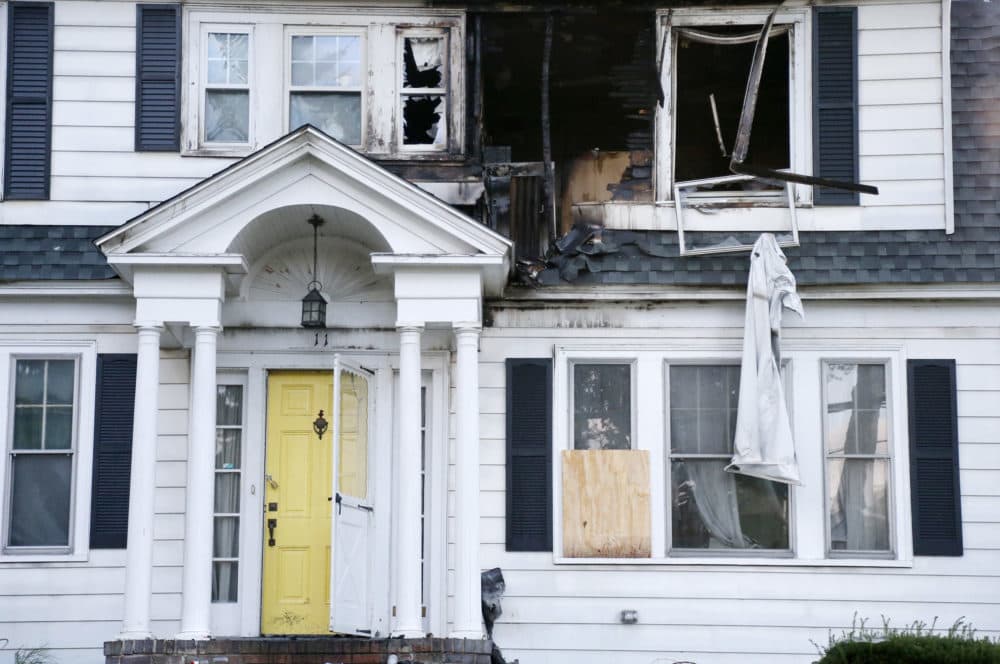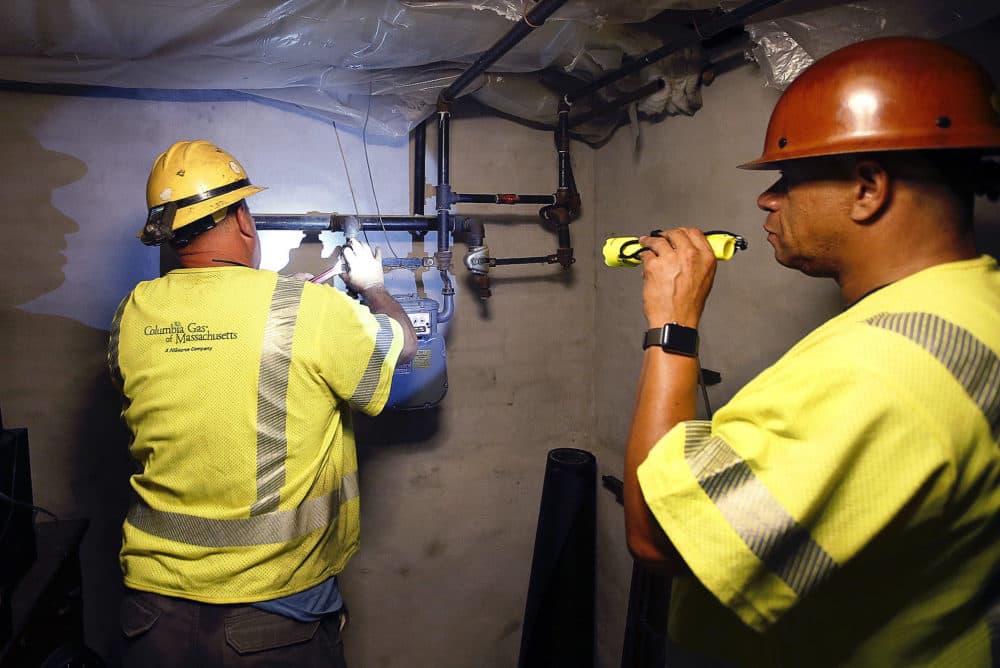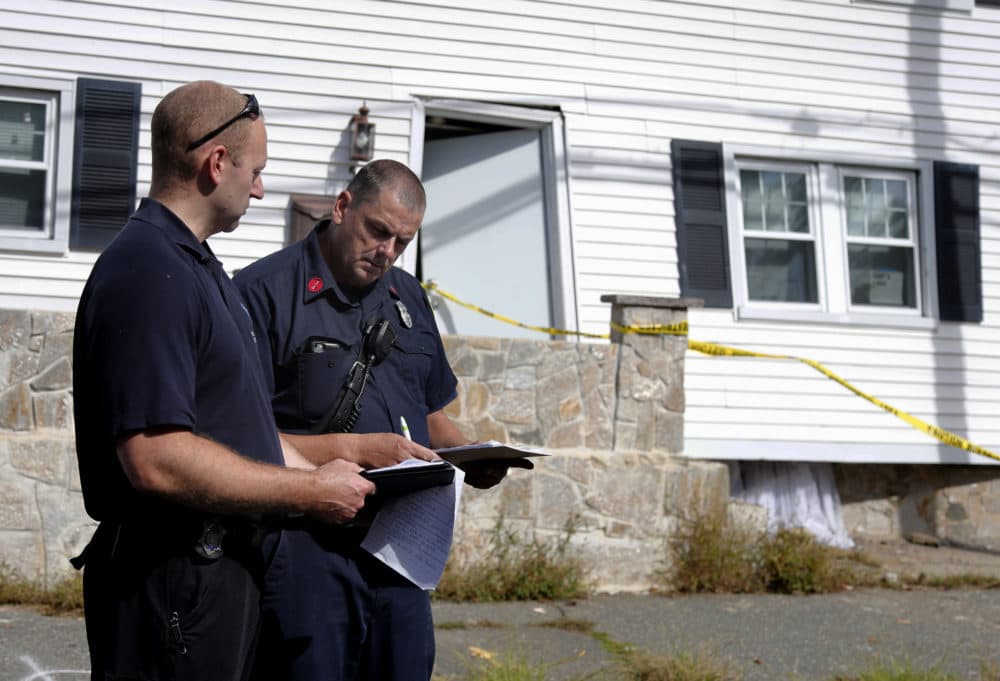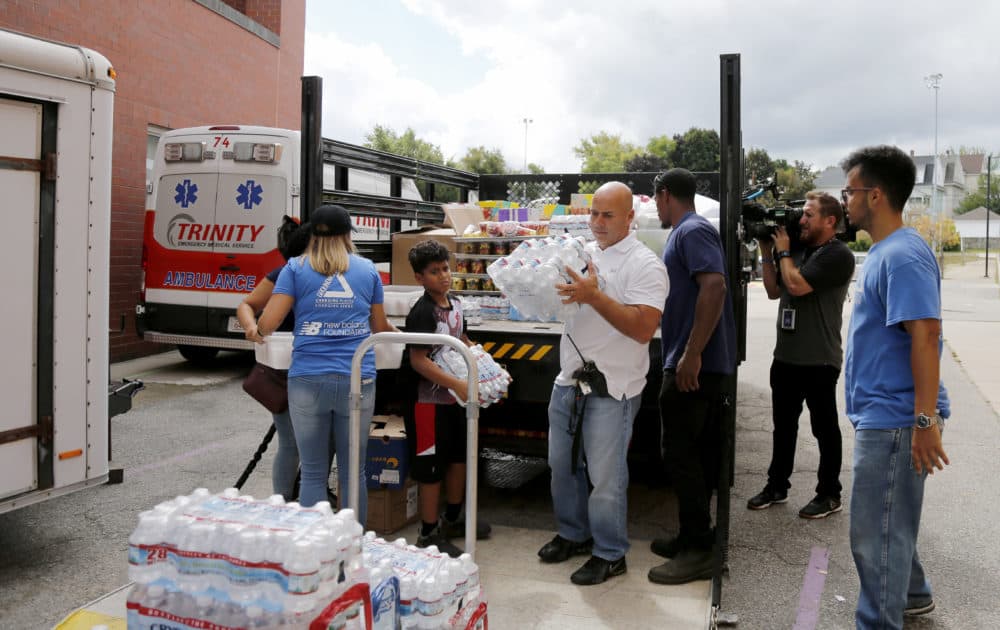Advertisement
Gov. Baker Declares State Of Emergency After Gas Explosions Rock 3 Mass. Communities

Thousands of people were still waiting to go home Friday after a series of gas explosions ignited fires in parts of Lawrence, North Andover and Andover Thursday evening.
One person, an 18-year-old from Lawrence, died and more than 20 others were injured in the blasts and blazes. Massachusetts State Police said Thursday it had confirmed 70 incidents of fires, explosions or gas odor investigations.
On Friday afternoon, Gov. Charlie Baker declared a state of emergency and said he had put the utility Eversource in charge of managing the recovery, after expressing frustration with Columbia Gas, which services the area.
"On a number of very significant issues we heard one thing and something else happened," Baker said of Columbia Gas.
In the same news conference, Lawrence Mayor Daniel Rivera ripped into Columbia. "The least informed and the last to act has been Columbia Gas," he said of the utility's response.
Columbia Gas President Steve Bryant said in a separate news conference that he understands why the governor took control of the restoration effort away from his company, but he said his employees have been working hard.

"We have been using all our resources to get this project as far down the road as possible," Bryant said. "I respect the governor's judgment; the governor has the same interest as we do, we want to restore service to these customers."
Earlier Friday, Columbia Gas said in a statement its "crews need to visit each of the 8,600 affected customers to shut off each gas meter and conduct a safety inspection." As of Friday afternoon, Bryant said the company had checked about 3,000 meters.
On Friday evening, Eversource's Bill Akley told reporters that utility crews are prioritizing securing properties and turning off gas so people can get back into their homes and have electricity restored. But he said it could take weeks for gas service to then be fully restored to the affected area.
Authorities had shut down gas and electricity to thousands of customers in affected neighborhoods Thursday evening, and urged residents there to evacuate their homes. All fires were put out overnight, state officials said. On Friday morning, Baker had asked people to be "as patient as possible" as utility and public safety officials inspect homes before residents can return.
Advertisement
Officials in the three municipalities were allowing people back into certain areas, often street by street. (Here are lists for Andover and North Andover.)
Lawrence's Rivera said Friday evening that officials were still not yet letting people in South Lawrence back into their homes.

All officials asked any returning residents not to turn gas back on themselves.
Shelters for those displaced would remain open in the three communities, the officials said. Many residents spent Thursday night in shelters, and schools and state offices in all three municipalities were closed Friday.
Columbia Gas said in its statement: "What happened in the Merrimack Valley [Thursday] was a tragic incident. We are saddened to learn of the death of a young man as a result of these events."
The company has set up a claims hotline — 1-800-590-5571 — and will open a claims center at the Lawrence Public Library on Sunday for those whose property was affected by the incidents. (The attorney general has more tips.)
Kurt Schwartz, director of the Massachusetts Emergency Management Agency, said early Friday that the investigation into the cause of the explosions "is in its very preliminary stages."
The National Transportation Safety Board sent a team to Massachusetts to investigate. Gas pipelines are within the agency's jurisdiction.

An agency spokesman said it will look at the design of the gas pipeline system, maintenance and upgrades that have been done, and the safety record of the pipeline operator. The agency's job, the spokesman said, is not to lay blame, but to determine what happened so it can be prevented from happening again.
U.S. Sen. Ed Markey, who also criticized Columbia for what he said was an inadequate response to the crisis, and Sen. Elizabeth Warren have called for Senate hearings into the explosions.
Massachusetts has seen more than $20 million in damages caused by gas pipeline incidents in the last 20 years, according to federal data.
Since 2010, there have been 27 major incidents, 10 of which involved Columbia Gas — the most of any one utility company. Columbia Gas had the two most costly incidents — one in Springfield in 2012 and Canton in 2015. Both led to fiery explosions and cost more than $1 million apiece in damage.
Despite having about 25 percent fewer miles of pipe than the bigger gas utility National Grid, Columbia Gas has had more incidents costing more money — almost $3 million since 2010.
When it comes to leaks, though, Columbia Gas is doing better than National Grid. It only had an average of two leaks for every 10 miles of pipe. Most of Columbia Gas's leaks were due to pipe, weld or joint failures.
With material from WBUR's Newscast Unit and WBUR's Meghan B. Kelly and Ally Jarmanning
This article was originally published on September 14, 2018.
